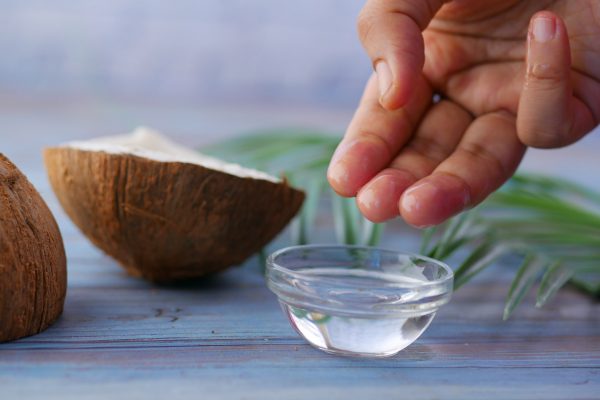
Coconut oil is a versatile and popular oil that has garnered attention due to its various uses and potential health benefits. Here are some key facts about coconut oil:
1. **Composition**: Coconut oil is extracted from the kernel or meat of mature coconuts harvested from the coconut palm. It is primarily composed of saturated fats, with over 90% of the fatty acids being saturated. These fats are mainly medium-chain triglycerides (MCTs), such as lauric acid, caprylic acid, and capric acid.
2. **Different Types**: There are two main types of coconut oil—refined and unrefined (or virgin) coconut oil. Unrefined coconut oil is processed without heat or chemicals and retains the coconut flavor and aroma. Refined coconut oil is processed using heat and may have a milder scent and taste.
3. **High Smoke Point**: It has a high smoke point (around 350°F to 400°F), which makes it suitable for cooking at high temperatures, such as frying and baking.
4. **Uses in Cooking**: Coconut oil is used in various culinary applications, such as frying, baking, and as a replacement for butter or other oils in recipes. It adds a distinct, sweet, and nutty flavor to dishes.
5. **Skin and Hair Care**: It’s a popular ingredient in skin and hair care products due to its moisturizing properties. It’s often used in moisturizers, hair conditioners, and as a standalone natural moisturizer.
6. **Health Benefits**: While the research is ongoing and not definitive, some studies suggest that the medium-chain fatty acids in coconut oil might have health benefits. It’s believed to raise HDL (good) cholesterol levels and may help in weight management due to its potential role in increasing satiety.
7. **Antimicrobial Properties**: Lauric acid, a component in coconut oil, has antimicrobial properties, which may help in fighting certain bacteria, viruses, and fungi. This is one reason why it’s used in some natural remedies and as a mouthwash in oil pulling.
8. **Potential Drawbacks**: Despite its popularity, coconut oil is high in saturated fat, and consuming it in large amounts might not be suitable for everyone, especially those with specific health conditions. Moderation in consumption is often recommended.
9. **Storage**: Coconut oil solidifies at cooler temperatures and liquefies when it’s warmer. It can be stored at room temperature, away from direct sunlight.
Always consider individual dietary needs and health conditions before incorporating coconut oil into your diet or daily routines. It’s essential to use it in moderation and as part of a balanced diet.